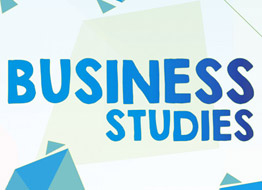Key Information
Level: LEVEL 3Examination Board: AQA
Subject Leader: Mr Hesketh
Entry Requirements
Grade 4 in English and Maths.Why Choose this course?
This qualification will provide learners with the opportunity to develop an understanding of the business environment and to focus on a specific aspect of business through applied learning. This qualification will provide learners with the opportunity to develop an understanding of the business environment and to focus on a specific aspect of business through applied learning.Prospects
This qualification provides a broad understanding of business knowledge and skills to support progress to higher education and is suitable for learning alongside other Level 3 qualifications, ie A levels and/or other Level 3 vocational qualifications (such as accounting, sociology, psychology, languages, Media, retail etc).
This qualification can also prepare you to take up employment in business and entrepreneurship, either directly after achieving the qualification or via higher education at university or college.
Studying this qualification will enable you to develop the fundamental knowledge and skills recognised as most important by higher education and employers. The qualification also offers you an opportunity to develop transferrable skills, such as teamwork, research and communication as part of their applied learning.
Year 12 - Subject Content
Unit 1: The business environment
In this unit you will develop an understanding of how and why businesses operate in the way they do. You will look at a range of different types of business and business structures, and explore how the ownership of a business and its objectives are interrelated. You will learn about the importance of different functions within a business and how they work together. You will understand the legal, financial, ethical and resource constraints under which a business must operate and how these can affect business behaviour. You will explore ways in which businesses respond to changes in their economic, social and technological environment, and the necessity for a business to plan. You will appreciate the influence different stakeholders can have on a business, and you will learn how to assess business performance.
Unit 2: Working in business
This unit will cover the skills and understanding needed to work effectively within a business environment. This includes arranging meetings, working with business documents, making payments, prioritising business activities and communicating with stakeholders. The way that these activities are dealt with will vary according to the specific business protocols in place. Some of these will be specific to a functional area; however, many are common to almost all job roles.
Unit 4: Customers and communication
In this unit you will learn the purpose, methods and importance of communication in business and the appropriateness of different forms of communication for different situations. You will develop the skills that will help you create a rapport with customers and have the opportunity to practise and develop your business communication skills.
Year 13 - Subject Content
Unit 16: Principles of project managementIn this unit you will learn about the stages of project management, and the type of skills a project manager should have. You will also learn why you need to monitor the progress of projects as it is vital to their successful completion and implementation. You will plan a project, and prepare a project plan. You will learn about the different planning tools available for project planning. Whilst preparing the project plan, you need to be aware of internal and external factors which might have an impact on the planning process, as well as the successful completion and implementation of a project.
Unit 5: Marketing and market research
The unit has particular emphasis on the role of market research and how it contributes to marketing decision-making, and the actions a business may take. Market research is the process by which organisations obtain the information they require. You will gain an in-depth understanding of primary and secondary market research methods used to inform marketing decision-making and any constraints on marketing activities. You will develop an understanding of the importance of selecting appropriate market research methods for market research proposals and you will be able to carry out market research, analyse the market research findings and present the findings
Course Opportunities/ Activities
Throughout the year there is several opportunities and activities which complement the studies. There is several trips which will include visits to further and higher education institutions. There will be activities help which are relevant to elements of the course such as; trips to Merlin Entertainment locations across the UK.
Support and Challenge
Throughout the year students are supported on all elements of the course delivery. The support will ensure students are fully up to date on the portfolio task and fully prepared for external exam challenges. Students in all lessons will develop their contextual understanding, to further conceptualise their learning.

 Would you like to set up your own business and be a successful entrepreneur? Would you like to be a manager in a business? Have you got an interest in the news and how the government and their policies affect your everyday life? If the answer is yes to any of these questions, then Business Studies is the GCSE for you.
Would you like to set up your own business and be a successful entrepreneur? Would you like to be a manager in a business? Have you got an interest in the news and how the government and their policies affect your everyday life? If the answer is yes to any of these questions, then Business Studies is the GCSE for you.